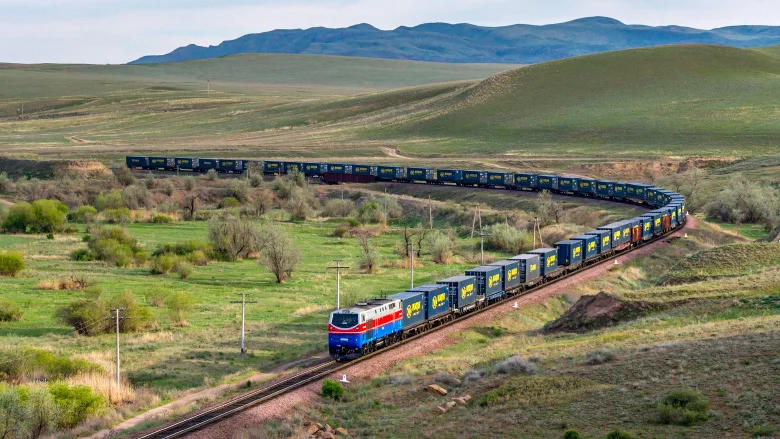BAKU, Azerbaijan, January 16. By supporting the Middle Corridor’s development, U.S. can contribute to prosperity for entire Caspian Sea region, Trend reports referring to a new policy paper, “A Trans-Caspian Trajectory: A New U.S. Strategy for Central Asia and the Caucasus,” written by Senior Caspian Policy Center (CPC) Fellow Dr. Eric Rudenshiold.
“The growing cooperation between Central Asia and the Caucasus presents an opportunity to strengthen regional resilience and autonomy through targeted investments in infrastructure, trade, and energy connectivity. By supporting indigenous efforts, such as the development of the Middle Corridor and an emerging peace process between Armenia and Azerbaijan, the U.S. can contribute to stability and prosperity for the entire region while opening new and larger avenues for American political, economic, and security collaboration,” noted Rudenshiold.
He pointed out that ultimately, a well-crafted U.S. policy in the Trans-Caspian region has the potential to secure long-term benefits for both the United States and its regional partners.
“By promoting sovereignty, resilience, and needed economic reforms, the U.S. can help transform Central Asia and the Caucasus into a self-reliant and globally integrated bloc,” he said, adding that Middle Corridor has afforded the C5 countries with new trade partners and alternatives to Russia’s sanctions-laden Northern Corridor and distant sea lanes via China.
“Critical to the Middle Corridor’s success has been warming relations between Baku and the C5 countries; massive expansion of the Port of Baku (the only seaport on the western Caspian); and increased cooperation between Astana, Baku, and Tbilisi to facilitate energy connectivity, as well as rapid and cost-efficient cargo transit. Growing policy connectivity, mutual investment, and complementarity of vision between the Caucasus and Central Asian capitals reinforces the merged region’s quest for greater strategic independence and economic autonomy, particularly as soft and hard infrastructure measures are integrating the eight countries into a Trans-Caspian regional economy. This rapid integration and reorientation parallels U.S. interests in seeing the region become more resilient and economically sovereign,” noted Rudenshiold.
Follow the author on X: @Lyaman_Zeyn







